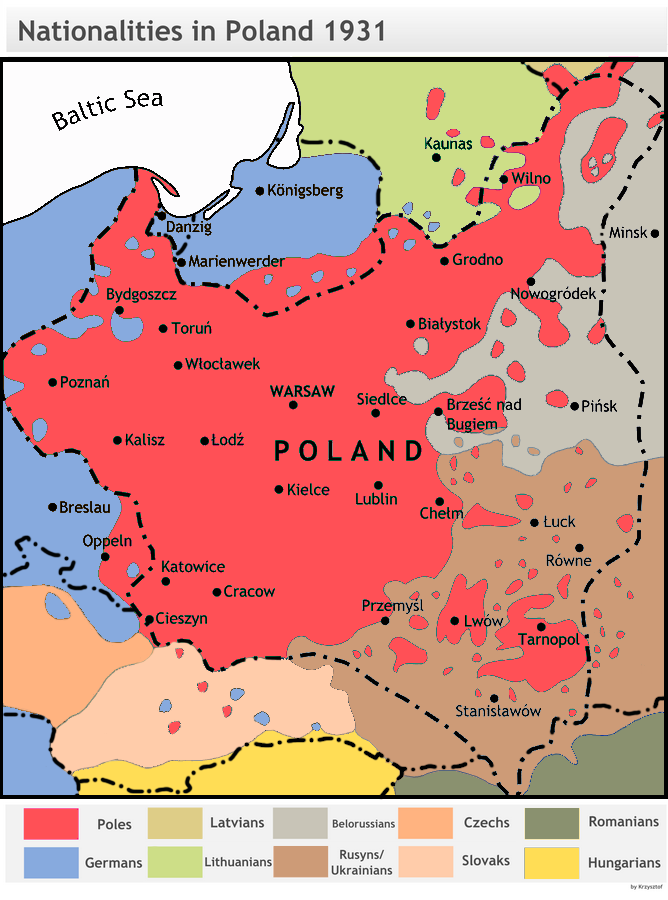Domen
Misico dux Vandalorum
What about this:
Self-Defense Vilnius (Lithuania and Belarus Self-Defense) was established in October 1918 and on 29 December 1918 were included formally in the composition of the Polish Army. It was commanded by General Wladyslaw Wejtko, and chief of staff was Major Stanislaw Bobiatyński.
Also incorrect?
No - this is correct I think.
So in other words self-defence units consisting of civilians were purely formally incorporated to the Polish army. They couldn't be incorporated to the Polish army factually, since there was no Polish army in that area and Polish either civilian or military administration was also non-existant there.
They could enter the ranks of the Polish army in fact only after breaking through the German cordon westward - to Poland.
It really means nothing and still doesn't allow anyone to claim that Poles "invaded" Minsk or Vilnius in late 1918, since they did not invade but they were local civilians of Polish, Jewish, Belarusian, Lithuanian and other nationalities, who decided to defend their homes against the Reds.
Those forces were formed there by local inhabitants, they did not come there from Poland.
Only post-factum they were formally incorporated to the structures of the Polish army.
Possibly the reason of doing this was to ensure that captured members of those Self-Defence civilian units would be treated according to international laws of war as Prisoners Of War - not as just "armed civilian terrorists". So the decision to incorporate them was taken in order to save their lifes.






